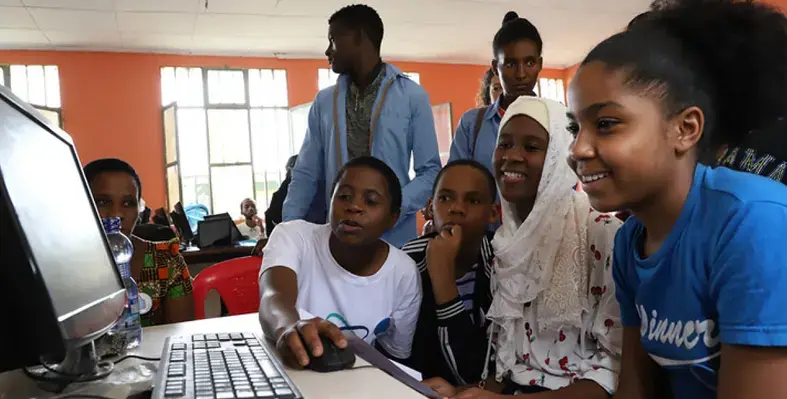The ITU’s latest 2024 estimates, released in November, highlight the ongoing digital divide between high-income and low-income countries. While Africa’s digital transformation is progressing, only 38% of its population uses the Internet, far below the global average of 68%.
Although 85% of Africa’s population has access to at least 3G mobile broadband, 4G coverage extends to only 60%, and 5G to a mere 11%, compared to the global 5G average of 51%.
Cosmas Luckyson Zavazava, director of the ITU’s Telecommunication Development Bureau, brings over 30 years of experience in telecommunications and has successfully implemented numerous impactful ICT projects worldwide.
A closer examination of the data uncovers further disparities:
In Africa, only 31% of women are connected to the Internet compared to 43% of men, and girls have less access than boys. To foster economic success, it is vital to ensure that young girls feel empowered and confident in their ability to use modern technology.
Another revealing statistic shows that 25% of rural Africans remain entirely unconnected due to insufficient broadband infrastructure. Internet connectivity also shows a stark urban-rural divide: 57% of urban residents are connected, compared to just 23% in rural areas. A lack of digital skills and unfamiliarity with technology further inhibit Internet usage.
Catalysing digital futures
The ITU is working with policymakers, businesses, community leaders, and innovators to address these challenges. Initiatives aim to provide digital skills training, ensure affordability of technologies and services for marginalised groups, and assist nations in upgrading their regulatory frameworks and infrastructure.
One notable programme is the Digital Transformation Centres (DTCs) initiative, launched in partnership with Cisco in 2019 to enhance digital literacy in underserved areas. With 14 DTCs, the initiative has equipped nearly 400,000 people with the digital skills necessary for employment or entrepreneurship.
These centres are also introducing programming and other digital skills to schoolchildren. Africa, the world’s youngest continent—where 70% of the population in sub-Saharan Africa is under 30, according to UN figures—holds immense potential. This potential can only be unlocked if both boys and girls are equally empowered through technology.
In 2024, several ITU-led or supported initiatives helped thousands of underserved youth join the global Internet community. Notable examples include International Girls in ICT Day, which helped 40,000 girls from 84 countries enhance their digital skills; the Generation Connect Young Leadership Programme, involving 30 young changemakers from 28 nations and co-led by Huawei; and the Her Digital Skills initiative, which trained over 1,400 young women across 19 countries in partnership with EY, GSMA, and W4, as well as the AI Skills Accelerator for Girls co-led by EY.
The impact of these programs will resonate for years.
Africa’s growing digital enterprise sector was on display at the ITU Global Innovation Forum in October, where two of the three innovation award winners hailed from the continent. Malawi’s Muuni Fund was recognized for its work fostering entrepreneurship and innovation ecosystems, while Uganda’s Bulamu Bridge AI Technologies received accolades for FemiHub, an app and WhatsApp chatbot providing women’s health information and services.
On April 24, 2025, the world will celebrate International Girls in ICT Day once more, an annual event aimed at inspiring girls and young women to pursue STEM education and careers.
“I encourage communities to organize events and activities to support girls as they learn about STEM and help them benefit fully from the power of technology.”






















